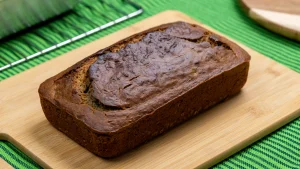National Party of Honduras
The ideals of General José Trinidad Cabañas contributed to the creation of the National Party of Honduras.
As the President of the Republic in 1854, he addressed the two chambers of the Legislative Power and discredited the imposition of partisan feudalism, calling for Hondurans to reconcile. He expressed that government administrations should be free from nepotism and partial interests, acknowledging that factions driven by particular interests competing for power have prevented the establishment of an orderly and law-abiding government in the country.
He emphasized that «national deeds, rather than personal ones, should characterize all governments,» thus establishing one of the fundamental principles upon which the doctrine of the National Party is based.
The idea of General José Trinidad Cabañas to form a new political option was proposed in 1874 by General Ponciano Leiva, who managed to gather several political segments that supported the idea of forming a new political organization, but failed to establish a permanent party at that time.
Luis Bográn took up Leiva’s idea, and in 1890, during a meeting of the Congress of the Republic held in the city of Santa Bárbara, he proposed the convenience of founding a new broad-based and representative political party that would allow the adherence of all social strata of Honduran society.
Once the agreement was reached, the constitutive act was signed, recognizing General Bográn as the provisional leader. The act established the general bases of the party and set the date of January 30, 1891, to meet in the city of Tegucigalpa and approve the bylaws, the action program, and nominate the candidate for the presidency of the Republic, an honor bestowed upon General Ponciano Leiva.
On this occasion, they approved participating under the name «National Progressive Movement.» Here begins the first attempt to create a new political option in Honduras. In this electoral process, the liberal tendency nominated Policarpo Bonilla as their candidate for the presidency of the Republic, and the results were as follows: National Progressive Movement 34,000 votes and the liberals 15,000 votes.
After the electoral triumph, the opposition did not accept the result, forcing General Leiva to stand firm in the mandate granted to him by the Honduran people, and he assumed the power of the nation on November 30, 1891. Later, the Progressives experienced internal wear and tear. However, General Ponciano Leiva governed for 14 months amid a civil war. On this occasion, they approved participating under the name «Progressive Party.» Here begins the first attempt to create a new political option in Honduras.
In this electoral process, the liberals nominated Policarpo Bonilla as their candidate for the presidency of the Republic, and the results were as follows: Progressive Party 34,000 votes and the liberals 15,000 votes. After the electoral triumph, the opposition did not accept the result, forcing General Leiva to stand firm in the mandate granted to him by the Honduran people, and he assumed the power of the nation on November 30, 1891. Subsequently, the Progressive Party suffered internal wear and tear. However, General Ponciano Leiva governed for 14 months amid a civil war.


